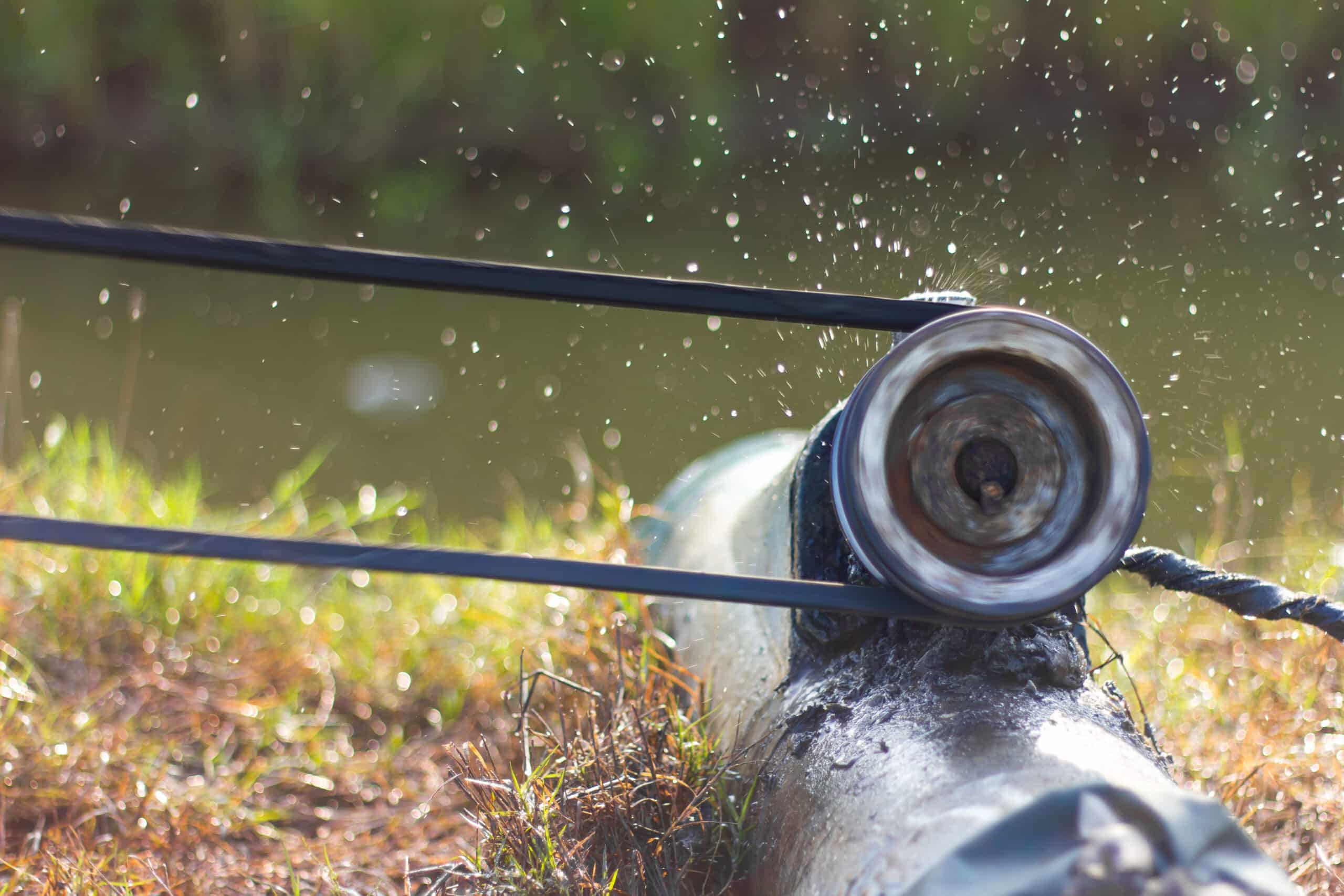Should You Grease or Oil a Fishing Reel?
Key Takeaways
- Greasing a fishing reel provides lubrication, rust and corrosion prevention, improved performance, and internal component protection.
- Oiling a fishing reel prevents corrosion, extends the reel’s lifespan, ensures smooth operation, and adds an extra layer of protection.
- Grease should be used for gears and components that mesh together, while oil is better suited for parts that rub together in tight spots.
When it comes to maintaining your fishing reel, one important question arises: Should you grease or oil it? Greasing and oiling are both essential for keeping your reel in top condition, but they serve different purposes. In this article, we will explore the benefits of greasing and oiling a fishing reel, as well as when to use each method.
The Benefits of Greasing a Fishing Reel
Greasing a fishing reel provides several key advantages that contribute to its overall performance and longevity. Let’s take a closer look at these benefits:
- Lubrication: Grease provides necessary lubrication between the moving parts of a reel, reducing friction and wear. This ensures smooth operation and optimal functionality.
- Rust and Corrosion Prevention: Fishing reels, especially those used in saltwater environments, are prone to rust and corrosion. Greasing the reel forms a protective barrier that helps prevent these issues, ultimately prolonging the reel’s lifespan.
- Improved Performance: By reducing friction and wear, greasing a fishing reel enhances its performance on the water. It allows for smoother casting and reeling, ensuring a more enjoyable fishing experience.
- Internal Component Protection: Grease not only lubricates the moving parts but also acts as a shield, protecting the internal components of the reel from dirt, debris, and water.
The Benefits of Oiling a Fishing Reel
Just like greasing, oiling a fishing reel offers a range of advantages that are crucial for its maintenance. Here are the benefits of oiling:
- Corrosion Prevention: Oiling creates a protective barrier on the reel’s components, preventing corrosion. This is especially important for parts that are exposed to water and moisture.
- Extended Lifespan: By reducing wear and tear, oiling helps prolong the lifespan of a fishing reel. It ensures that the reel’s parts operate smoothly, preventing unnecessary strain and damage.
- Smooth Operation: Properly oiled reels offer smooth operation, allowing for effortless casting and reeling. The oil helps reduce friction between parts, ensuring optimal performance.
- Added Protection: Oil adds a layer of protection to the reel, repelling water during use. This helps maintain the reel’s functionality and prevents damage caused by moisture.
Knowing When to Grease or Oil
Now that we understand the benefits of both greasing and oiling a fishing reel, the next question is when to use each method. The general rule of thumb is to use grease for gears and components that mesh together, while oil is better suited for parts that rub together in tight spots.
For example, when greasing a reel, focus on applying grease to the gears and other components that require meshing together. This ensures proper lubrication and protection for these parts. On the other hand, use oil for lubricating parts such as knobs, ball bearings, crank handles, and sliding mechanisms. These areas often require oil to reduce friction and maintain smooth operation.
It’s important to note that not all fishing reels are the same, and some manufacturers may recommend specific lubrication methods. Always refer to the reel’s manual or contact the manufacturer for guidance on the best lubrication practices for your specific reel.
Conclusion
In conclusion, both greasing and oiling are essential for maintaining a fishing reel. Greasing provides necessary lubrication, rust and corrosion prevention, improved performance, and internal component protection. Oiling, on the other hand, prevents corrosion, extends the reel’s lifespan, ensures smooth operation, and adds an extra layer of protection.
When deciding whether to grease or oil your reel, consider the specific parts that require lubrication and follow the manufacturer’s recommendations. By properly maintaining your fishing reel through greasing and oiling, you can maximize its performance and enjoy many successful fishing trips to come.
Related Websites:
FAQs:
Q: What is the importance of maintaining fishing reels?
Maintaining fishing reels is important to ensure their smooth operation, prevent wear and tear, and extend their lifespan. Regular maintenance helps to keep the reels functioning optimally and reduces the chances of breakdowns or malfunctions while fishing.
Q: What role does lubrication play in fishing reels?
Lubrication is crucial in fishing reels as it reduces friction between moving parts, protects against corrosion, and extends the lifespan of the reel. Proper lubrication ensures the reel operates smoothly and enhances its overall performance.
Q: What are the differences between grease and oil for fishing reel lubrication?
Grease is a semi-solid lubricant that offers better staying power, while oil is a liquid that penetrates faster and provides easier access to hard-to-reach areas. Grease is ideal for gears, bearings, and the drag system, while oil is preferred for the handle, bail mechanism, and smaller moving parts.
Q: When should I use grease on a fishing reel?
Grease should be used on a fishing reel in scenarios where long-lasting lubrication and better protection against water intrusion are required. This includes applying grease to the gears, bearings, and drag system. Grease provides a layer of protection and reduces the chances of water damaging these crucial components.
Q: When should I use oil on a fishing reel?
Oil is best suited for scenarios where faster movement, better penetration, and easier access to hard-to-reach areas are required. It is recommended to use oil on the handle, bail mechanism, and smaller moving parts. Oil ensures smooth movement and prevents any potential friction or sticking.






